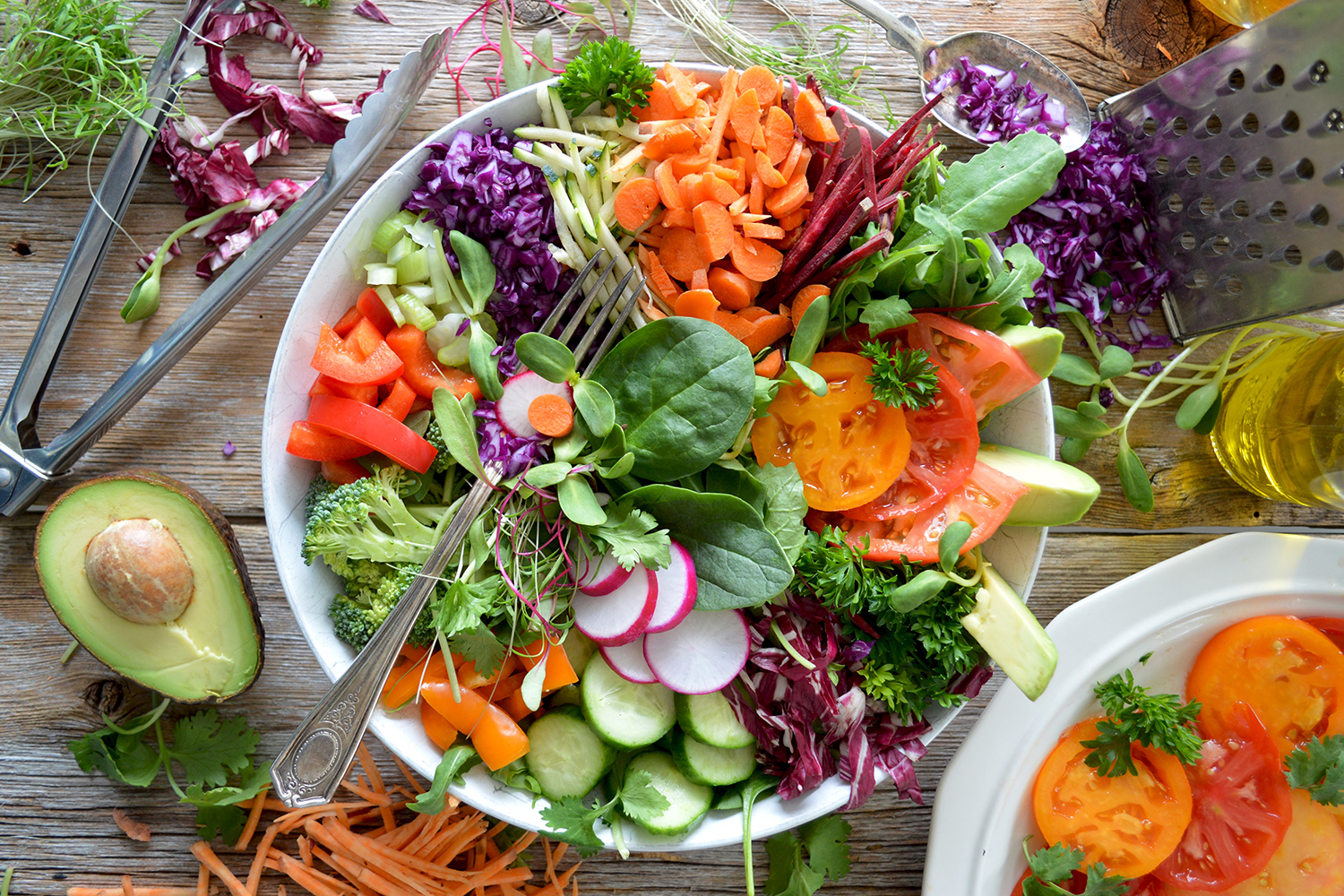
Why you probably need to eat more veggies
Vegetables are pretty much the only part of our diet that have never really come under question from a nutritional standpoint. Everyone more or less unanimously agrees that they are an essential part of a healthy diet.
Veggies are an amazing source of essential vitamins and minerals, are a great source of fiber which is important for our digestive health, and also contain a variety of phytonutrients that contain anti-inflammatory, antioxidant, and other disease fighting properties.
Vitamins & Minerals
While many of the vitamins & minerals you find in veggies can also be obtained elsewhere, there is no other source that offers such bang for your buck. That is to say, you get an incredible number of these vitamins and minerals for a relatively low amount of calories. In fact this is one of the most trickiest combinations to create with today’s modern diet – getting the required amounts of vitamins and minerals into your diet without over consuming the number of calories your body requires. If you’re not eating enough veggies, then the chance is high that you aren’t hitting the requirements your body needs.
Our body relies on vitamins and minerals for a whole variety of different functions, from energy production to our nervous system and immune system, and we need to obtain them from our food. Not all vitamins and minerals can be stored by the body, which is why it’s important to be consistently consuming vegetables to keep our needs met.
The main vitamins and minerals you’ll receive from vegetables are: vitamin A (as its precursor, beta-carotene), vitamin C, the B vitamins (except B12), vitamin K, calcium, chromium, copper, magnesium, manganese, potassium, and sulphur.
Phytonutrients
Phytonutrients can only be found by consuming plants, and these compounds are what give fruits and veggies their vibrant colours. By figuratively “eating the rainbow” when it comes to veggies, you’re ensuring you get a wide variety of these health protecting nutrients!
So far there have been more than 5000 phytonutrients identified, but scientists are still working to figure out exactly what role they play in our health. What has been seen already is that individual phytonutrients themselves don’t have such a strong effect on our body, but multiple in unison do, as it occurs in nature, which is why it’s much more important to eat vegetables in their whole form rather than using supplements.
Phytonutrients aren’t considered essential, unlike vitamins and minerals, but their health protecting abilities make them an important component of our diet. They have antioxidant and antimicrobial properties, help reduce inflammation, protect our immune system, help prevent chronic diseases, and reduce the risk of cardiovascular disease.
A wide variety of vegetables across different vegetable families is also important, as phytonutrients within families tend to be fairly similar. Research has shown that a wide variety of many different phytonutrients is more important that a large quantity of only a few.
Fiber
Vegetables and other plant-based foods are our bodies’ main source of fiber. Having sufficient fiber in your diet is essential for ensuring your digestive system health. It makes sure everything keeps moving through our system, provides a source of nutrition for the beneficial bacteria in our gut, and stimulates the growth and maintenance of these beneficial bacteria. Different types of fiber feed different types of bacteria, so again variety is the name of the game.
Read more about the importance of fiber here.
So how many veggies do you actually need to eat?
Recommendations can vary from country to country base on their individual nutrition guidelines. Many recommendations now focus on a plate-based approach, which generally means ensuring that at least 50% of your plate is made up of vegetables.
Generally the guidelines suggest around 5-8 servings per day of fruit and vegetables, even up to 10 (with a strong emphasis on vegetables). One serving is roughly ½ cup of cooked veggies or around 80-90 grams. Raw leafy greens would be 2 cups for one serving.

